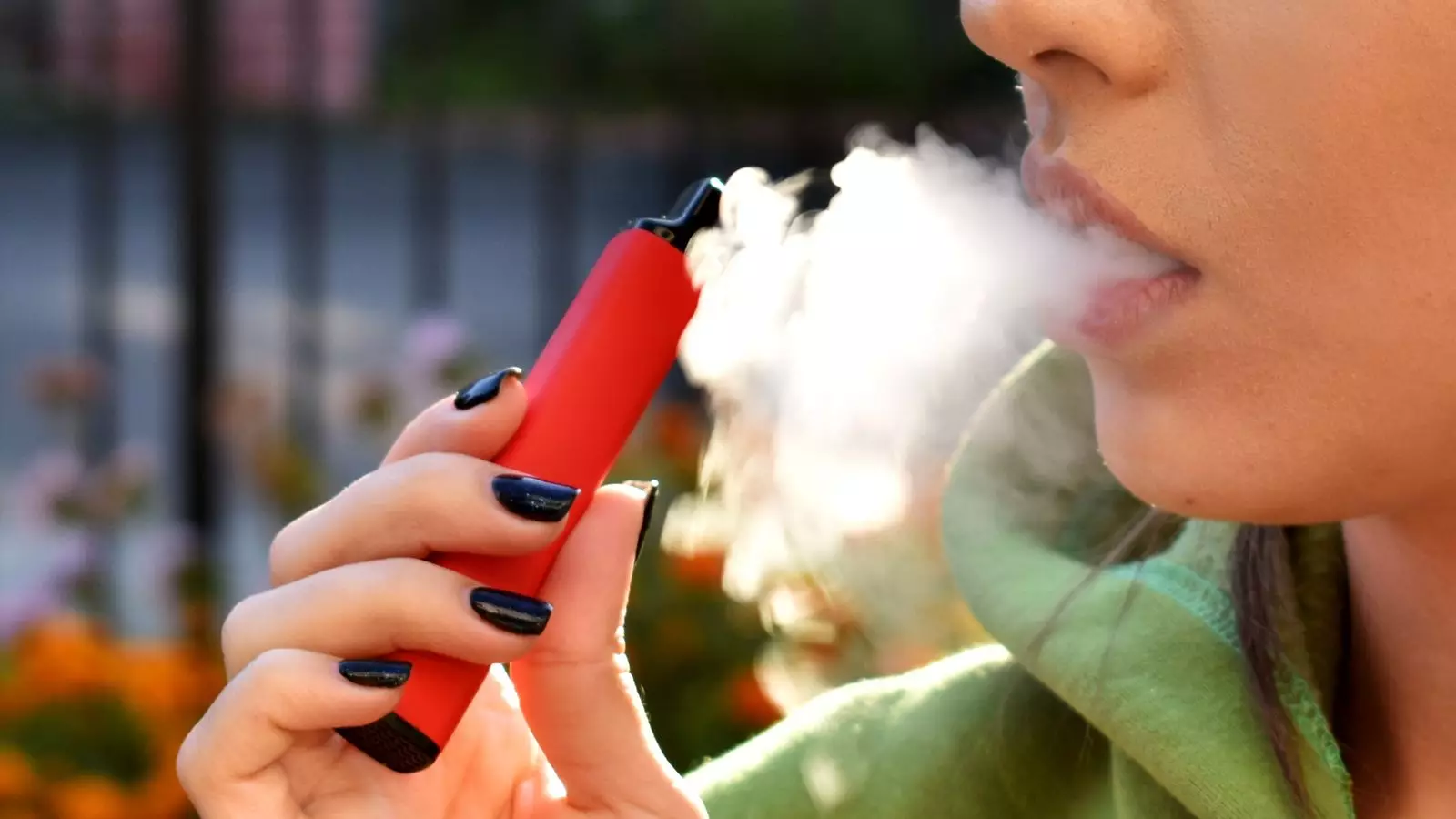Rishi Sunak, the prime minister of the UK, has recently announced plans to ban disposable vapes in an effort to address the growing concern about their use among children. The rise of vaping among young people has sparked worry among teachers who have observed signs of nicotine dependency in the classroom. To further deter children from vaping, the government is also considering implementing restrictions on vape flavors. In addition to the UK government, the Scotland and Wales governments are also planning to ban single-use vapes.
The proposed ban on disposable vapes will be part of a larger legislation that requires parliamentary approval. The intention of these measures is to create a smoke-free generation and protect children’s health in the long term. The ban on the sale of tobacco products to individuals born after January 1, 2009, aligns with this commitment. Furthermore, alternative nicotine products like nicotine pouches will also be prohibited. Rishi Sunak, speaking ahead of a school visit, emphasized the urgency of this action, stating that the long-term impacts of vaping are still unknown, and the addictive nature of nicotine makes it unacceptable to market vapes to children.
Acknowledging that vaping can be a helpful tool for smokers looking to quit, Sunak asserted that the marketing of vapes to children is unacceptable. Thus, alongside the ban on disposable vapes, the government plans to introduce plain packaging, restrict vape flavors, and change how vapes are displayed in shops. These comprehensive measures aim to deter children from using vapes and protect their health.
Smoking remains the leading preventable cause of death in the UK, contributing to approximately one in four cancer-related deaths and resulting in 80,000 deaths annually. The health effects of vaping are still largely unknown. To address these public health concerns, the government conducted a consultation last year, which revealed that nearly 70% of respondents, including parents, teachers, healthcare professionals, and the general public, supported further restrictions on smoking and vaping.
To ensure the effectiveness of the ban and restrictions, enforcement agencies such as Border Force and HMRC will receive £30 million in new funding each year. Additional fines will be imposed on shops in England and Wales that sell vapes illegally to children, supplementing the existing maximum fine of £2,500 imposed by local councils. These enforcement measures aim to curb access to vapes and deter retailers from targeting underage customers.
Evidence of the Rising Trend
Recent data has shown a significant increase in the number of children using vapes over the past three years, with the figure tripling. In response, the government intends to use the Environmental Protection Act to ban disposable vapes, with the aim of achieving this objective no later than the end of 2025. The move has garnered support from health and environmental campaigners who see the ban as a positive step towards safeguarding the health of future generations.
Dame Rachel de Souza, the Children’s Commissioner for England, expressed relief at the proposed measures, as they will address the normalization of vaping among young people. In her previous conversations with children, she heard that even 12-year-olds considered vaping to be a normal behavior among their peers, including within school premises. Similarly, Libby Peake, head of resource policy at the Green Alliance, lauded the ban for its positive impact on both the health of future generations and the environment.
While the measures have received widespread support, there are also dissenting voices. Former prime minister Liz Truss urged Rishi Sunak to reconsider the ban, arguing that in a free society, adults should be able to make their own choices about their lives. Truss highlighted the potential absurdity of the ban, which creates different rights for adults based on their birthdates. Wes Streeting, the shadow health secretary, criticized the government for its delayed response, as the Labour party had proposed measures to address the issue more than two years ago, which were blocked by the Conservatives.
The ban on disposable vapes and the introduction of further restrictions on vaping aim to protect children from the potential health risks and addictive nature of nicotine. While the government’s measures have been commended for safeguarding the health of future generations, concerns have been raised about the extension of the nanny state and the limitations on individual choice. As the debate continues, it is clear that finding the right balance between public health protection and personal freedom remains a complex challenge.


Leave a Reply